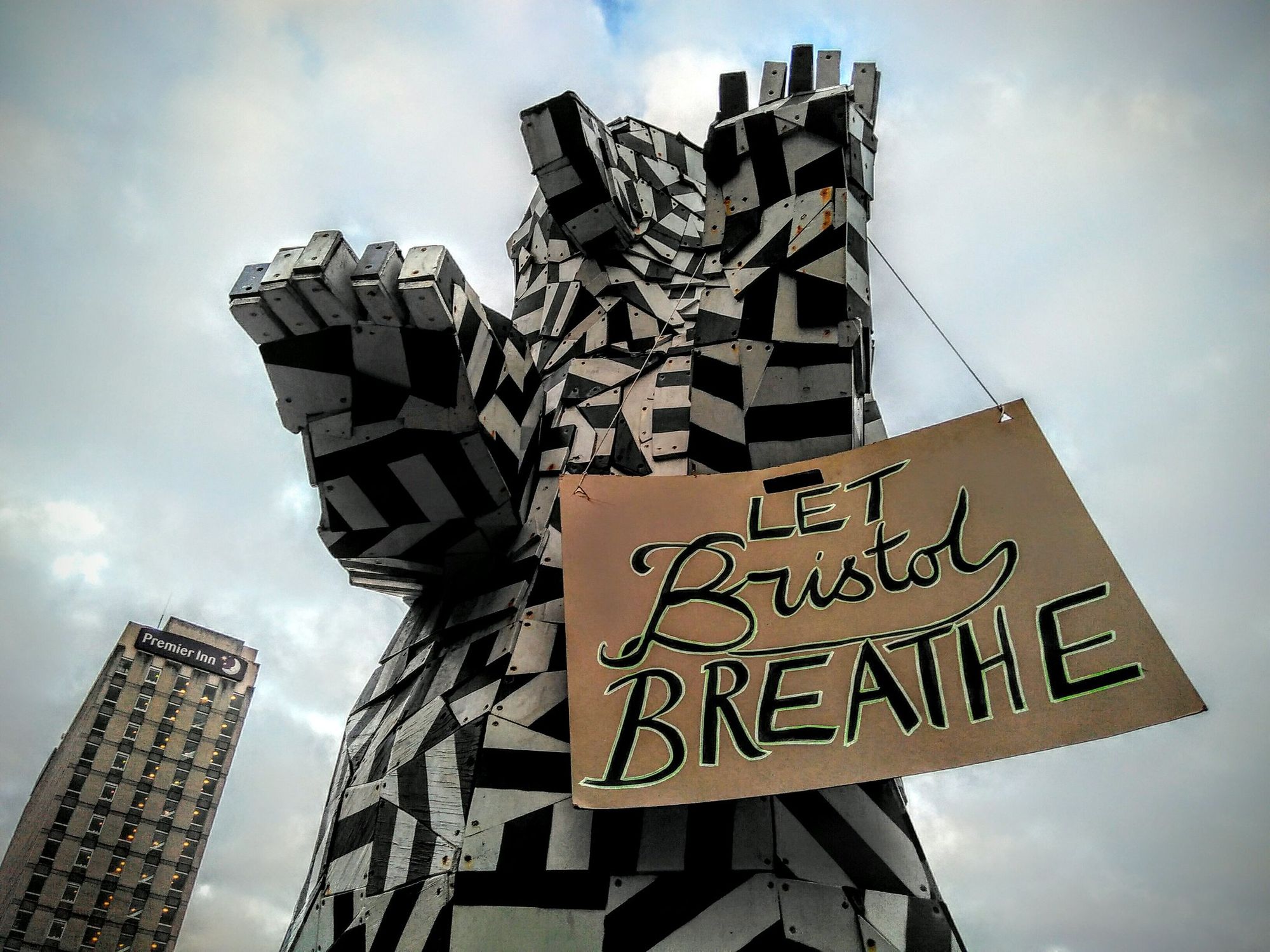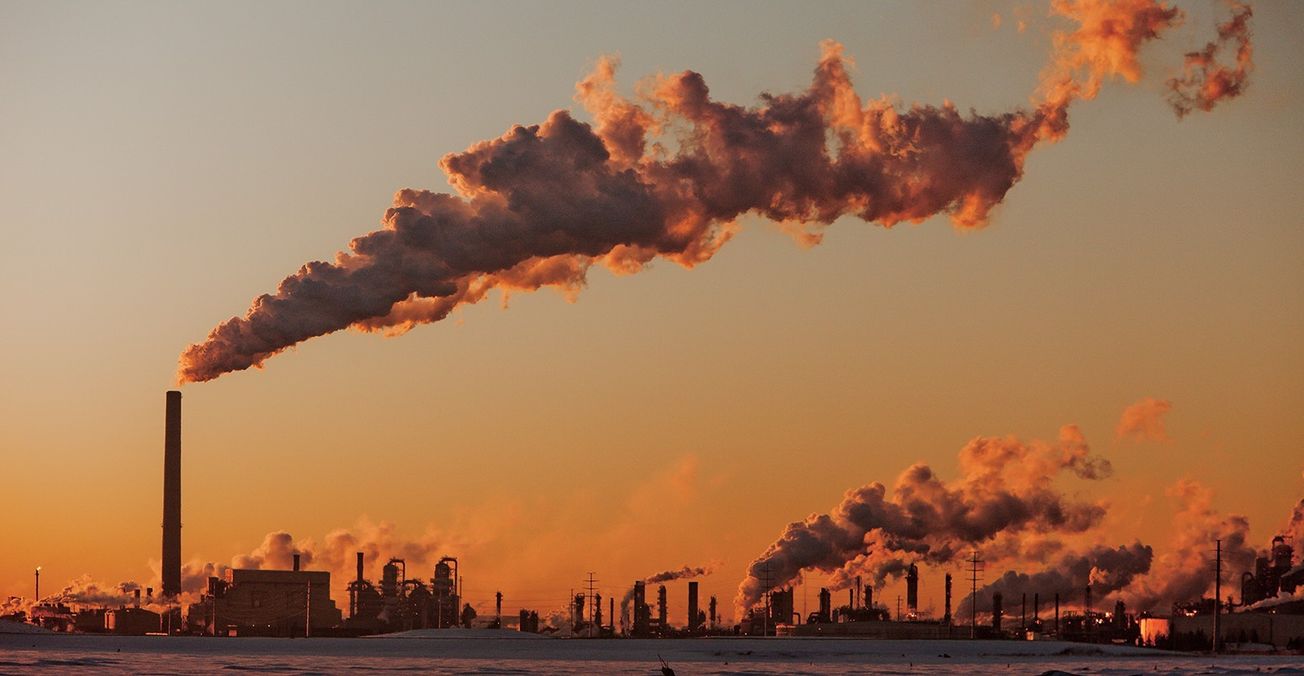By Dan Sarkar, Second year, Chemistry
An international report detailing how fossil fuel corporations have ‘polluted the information landscape’ and mislead the public for decades has been published earlier this month.
The report, collaborated on by academics from the Universities of Bristol, Harvard and George Mason, highlights how fossil fuel corporations have systematically mislead the public about the causes of climate change by actively orchestrating denial and disinformation for nearly 40 years.
It begins by analysing leaked internal documents from Exxon in 1970s-1990s, in which the company admits to having knowledge that CO2 being released from burning fossil fuels is the primary source of climate change as far back as the 1950s. These documents also cast light on Exxon’s plan to misinform the public by ‘emphasizing the uncertainty in scientific conclusions’ and to make these uncertainties part of the status quo.
Another tactic Exxon used that was mentioned in these documents was to “stress Exxon’s environmentally sound efforts” by restricting chloro-fluoro-carbons (CFCs) and supporting conservation. This tactic of ‘greenwashing’ is still used today by fossil fuel corporations, notably in the past few months by Shell, whose PR department are responsible for a YouTube series about reducing CO2 emissions whilst spending a staggering $5.5m on lobbying the US government in 2019 alone.

The report goes on to accentuate that the fossil fuel industry and its political allies ‘consistently attacked the consensus’, whilst offering “no alternative for why the climate was changing”. An analysis on an advertorial by the newly merged ExxonMobil in the New York Times in the year 2000 showed that the company were actively deceiving the public by denying that there was a global consensus in the scientific community, claiming that ‘little if any warming’ had actually happened.
Some of the common disinformation techniques used in the ExxonMobil advertorial were then analysed and categorised. First, by introducing existing contradictions used by climate denialists which can at least partially be attributed to misinformation by the fossil fuel industry. Then, by using the “five techniques of climate change denial” and attributing them to several of the arguments. These techniques, summarised by the acronym FLICC, are Fake Experts, Logical Fallacies, Impossible Expectations, Cherry Picking, and Conspiracy Theories.
One example where these techniques were used is the argument that “the climate has always changed”. Using the fact that the climate has changed naturally in the past and that the climate is changing now to state that current climate change is natural is a textbook example of jumping to conclusions and is just one of many given in the report.
“Disinformation about climate change has a straightforward purpose — to block action on climate change."
One of the most interesting aspects of the report is the conclusion that the strategies, rhetorical arguments and techniques used by the fossil fuel industry come straight out of the tobacco industry’s playbook for delaying tobacco control. For decades, tobacco companies put out a slew of misinformation, including manipulated research and public advertisements, to try and change the growing consensus in the scientific community that smoking is a major cause of lung cancer. It really isn’t hard to see the similarities between the two industries.
Professor Stephan Lewandowsky’s words summarise the report well. The chair of cognitive psychology in the School of Experimental Psychology and Cabot Institute for the Environment stated that: “Disinformation about climate change has a straightforward purpose — to block action on climate change. In America, it has largely succeeded, with policies to mitigate climate change blocked or delayed for decades.”
👇🏿👇🏿👇🏿👇🏿👇🏿👇🏿👇🏿👇🏿👇🏿👇🏿👇🏿
— US Youth Climate Strike (@usclimatestrike) November 15, 2019
👉🏿👇🏾👇🏾👇🏾👇🏾👇🏾👇🏾👇🏾👇🏾👇🏾👈🏿
👉🏿👉🏾👇🏽👇🏽👇🏽👇🏽👇🏽👇🏽👇🏽👈🏾👈🏿
👉🏿👉🏾👉🏽👇🏼👇🏼👇🏼👇🏼👇🏼👈🏽👈🏾👈🏿
👉🏿👉🏾👉🏽👉🏼👇🏻👇🏻👇🏻👈🏼👈🏽👈🏾👈🏿
👉🏿👉🏾 👉🏽 exxon knew 👈🏽👈🏾👈🏿
👉🏿👉🏾👉🏽👆🏼👆🏼👆🏼👆🏼👆🏼👈🏽👈🏾👈🏿
👉🏿👉🏾👆🏽👆🏽👆🏽👆🏽👆🏽👆🏽👆🏽👈🏾👈🏿
👉🏿👆🏾👆🏾👆🏾👆🏾👆🏾👆🏾👆🏾👆🏾👆🏾👈🏿
👉🏿👆🏿👆🏿👆🏿👆🏿👆🏿👆🏿👆🏿👆🏿👆🏿👈🏿
The work that this report does to emphasise the scale of the misinformation is unimaginably important. Geoffrey Supran, Research Associate in the Department of the History of Science at Harvard University, explained that “the evidence is incontrovertible: Exxon misled the public. Like all bad actors, they should be held accountable.” This is all the more poignant when reminded that another 2019 study by Yale University found that between 30 and 40 percent of Americans still don’t believe in climate change.
It’s clear that despite the work done by the University and the wider scientific community, much more effort is needed to repair the damage done by the fossil fuel industry. There is still much to be done.
Featuredimage: Flickr / kris krug
Frustrated by climate misinformation? Get in touch!









